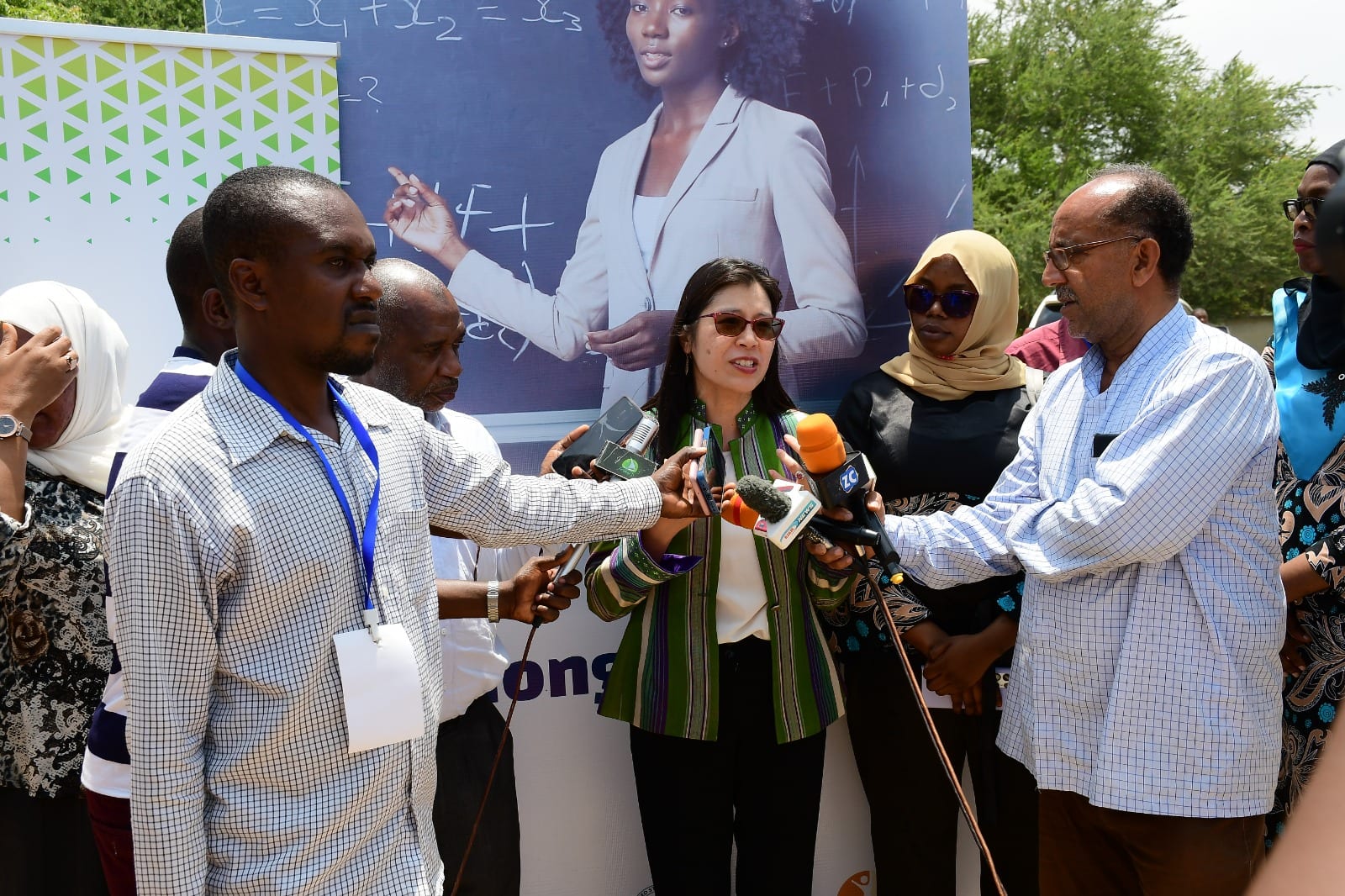The United States Agency for International Development (USAID) and Zanzibar’s Ministry of Information, Youth, Culture and Sport launched a new project focused on increasing youth empowerment, productivity, and community engagement, especially out-of-school youth aged 15-25. The launch of the four-year, $10.6 million (TZS 24.8 billion) project, dubbed USAID Kijana Nahodha, was officiated by the President of Zanzibar and the Chairman of the Revolutionary Council, His Excellency Dr. Hussein Ali Mwinyi on February 22, 2023. T-MARC Tanzania will implement the project in partnership with Care International, Tanzania Youth Coalition (TYC), and YLabs.

USAID/Tanzania Mission Director V. Kate Somvongsiri gifting Honorable Dr Hussein Ali Mwinyi a Kijana Nahodha frame.
The launch event aimed to officially introduce the project to the government, partners, and the public to inform them about its goal and mark the beginning of implementing the project's activities.
The project aims to have a Healthy, Productive and engaged Youth with priority given to marginalized groups, including HIV+ youth, adolescent girls, youth in rural areas and urban slums, and orphans.
“Youth in any country are the workforce; therefore, they need to be well equipped to meaningfully contribute to the nation’s development. It is unfortunate that youth in this country face many challenges, but fortunately, the US government has always been at the forefront of supporting Zanzibar and the United Republic of Tanzania’s government in all our efforts to accomplish our development goals in various sectors,” said His Excellency, Dr. Mwinyi.
In response, the USAID/Tanzania Mission Director, Kate Somvongsiri assured the president that the US Government through USAID/Tanzania Mission is committed to supporting Tanzanian youth to ensure the country can achieve the economic goals outlined in its Vision 2025. The Mission Director concluded her remarks by stating that, “through the project youth will receive new skills and appropriate knowledge to run businesses” making them vital stakeholders and drivers of change at the local, regional, and national level.

USAID/Tanzania Mission Director V. Kate Somvongsiri addressing the press before the launch of the Kijana Nahodha Project.
USAID Kijana Nahodha will directly impact the lives of 45,000 youth: approximately 10,000 in Zanzibar and 35,000 from the two targeted mainland regions: Dar es Salaam and Morogoro.